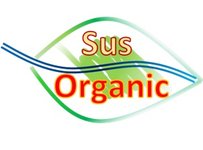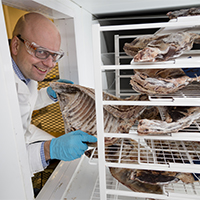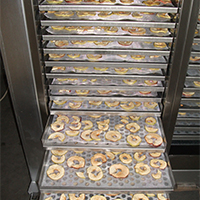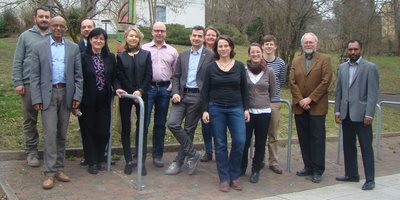SusOrganic
Development of quality standards and optimised processing methods for organic produce
Background
Organic food is expected to be of high quality and produced sustainably regardless of its degree of processing. EC legislation defines organically grown food as high quality food which has to be handled carefully throughout the whole life cycle, but explicit rules only exist for actual agricultural production and additives used in processed food. There is a lack of guidelines for food processing conditions for organic raw materials, along with the environmental footprint of the product.
Main project activities
- Development of quality standards and improved product quality
- Processing guidelines and optimised processes for higher product quality and energy efficiency
- Environmental impact (LCA) and economic (LCCA) analysis
- Tests (drying/cooling) using the process settings commonly used
- Optimisation of process settings and control
- Development of on-line non-invasive systems based on optical properties of food matrices
- Establishment of a sound database
- Stakeholder engagement
Benefits and results
Expected societal benefits of the project
Seminars and training material for producers of organic food materials and products and the food industries as a whole in the partner countries on improved processing and handling of raw materials and processed produce, which then can be further disseminated throughout the EU, will be held and provided. The producers will be provided with baselines for the environmental impact of their production. Moreover, transferability to other products is expected to be high. The approach and study developed can be easily applied to existing devices as retrofit; new built devices will be simple and affordable even to very small participants in the market, and therefore contribute to the increase of their livelihoods (lower costs, better environmental performance).
Expected outcomes, results and impact
The main results expected for the producers are: quality standards for organic produce; processing guidelines; significant increase in retention of valuable components in the products, while reducing time and costs of production and, therefore, increase of profit and competitiveness, through the development of processing standards and control systems for drying and cooling/freezing; affordable new technology; reduction of raw material losses >10%; reduction of environmental impact, e.g. energy demand reduction of at least 30% (compared to status quo) and 50-80% with heat pumps; database accessible for the participants in the market containing crucial information for the conduction of LCA and LCCA; seminars and training material.
Expected long-term impact
The outcomes contribute to food security and safety, and resource efficiency in food manufacturing. Producers of organic produce will be assisted to improve the sustainability product quality of their products, and thus, increase their competitiveness.
How to reach target groups
At least one training pack for on-farm and off-farm producers of dried and cooled/frozen fruit, vegetable, meat and fish products in each country will be held. Workshops will be carried out on the main aspects of changes in the products throughout processing and their causes.
More about the project
Coordinator of SusOrganic
- BARBARA STURM,
UNIVERSITY OF KASSEL, GERMANY
MAIL: barbara.sturm@uni-kassel.de
Phone: +49 5542 98-1603



Project partners
Albert Esper, Meridian Fruchthandelsgesellschaft mbH, Germany
Girma Gebresenbet, Swedish University of Agricultural Sciences, Sweden
Liliana Badulescu, University of Agronomic Sciences and
Veterinary Medicine of Bucharest, Romania
Michael Bantle, SINTEF Energy Research, Norway
Oliver Hensel, University of Kassel, Germany
Paola Pittia, University of Teramo, Italy
Riccardo Massantini, University of Tuscia, Viterbo, Italy

The project SusOrganic is funded by ERA-Net CORE Organic Plus Funding Bodies partners of the European Union’s FP7 research and innovation programme under the grant agreement No. 618107.
